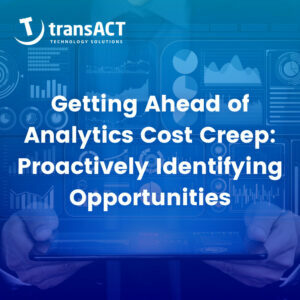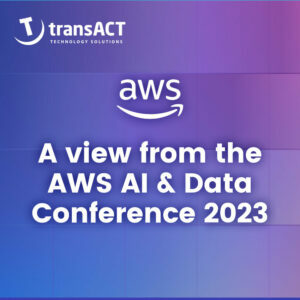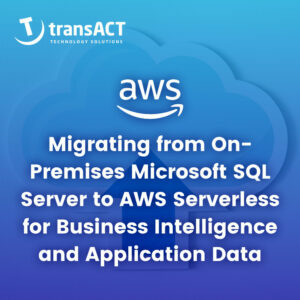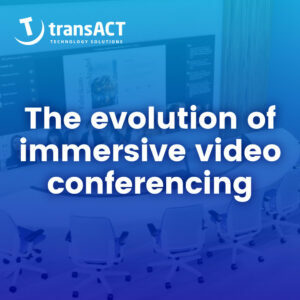A view from the AWS AI & Data Conference 2023
Keval Sheth, Solution Architect, Ireland

" Good AI needs good data, good data needs good AI, and good work needs good people."
AWS hosted an exceptional event in Kilkenny on September 27, 2023. The team at transACT was eager to participate and promptly registered for the event. The venue was situated in the picturesque town of Kilkenny, Ireland. Despite the challenges posed by the Agnes storm, we successfully navigated the weather and arrived at the event on the morning of 27th.
The event included exclusive insights into AWS's latest generative AI, ML and Data innovations. There were real-life case studies from organisations showcasing their implementations. We were delighted to meet some of the leaders from AWS and, of course, networking with AWS teams, customers, and partners. I, along with my fellow SA's Paul Corley , Stuart Mahon and Michael Willson from transACT attended the event.
The following blog will provide a concise summary for those unable to attend the event. The entire day was segmented into multiple tracks, making it challenging to participate in every session simultaneously. Hence, attendees had to select a specific stream to concentrate their attention on.
The event commenced with great energy, featuring a keynote session by Dr. Werner Vogels, the CTO of Amazon. Dr. Vogels explained the profound impact of global AI applications in fostering a more sustainable world, emphasising the concept of "AI for good." He highlighted the extensive work that AWS and various services have dedicated to advancing GenAI technologies over the years.
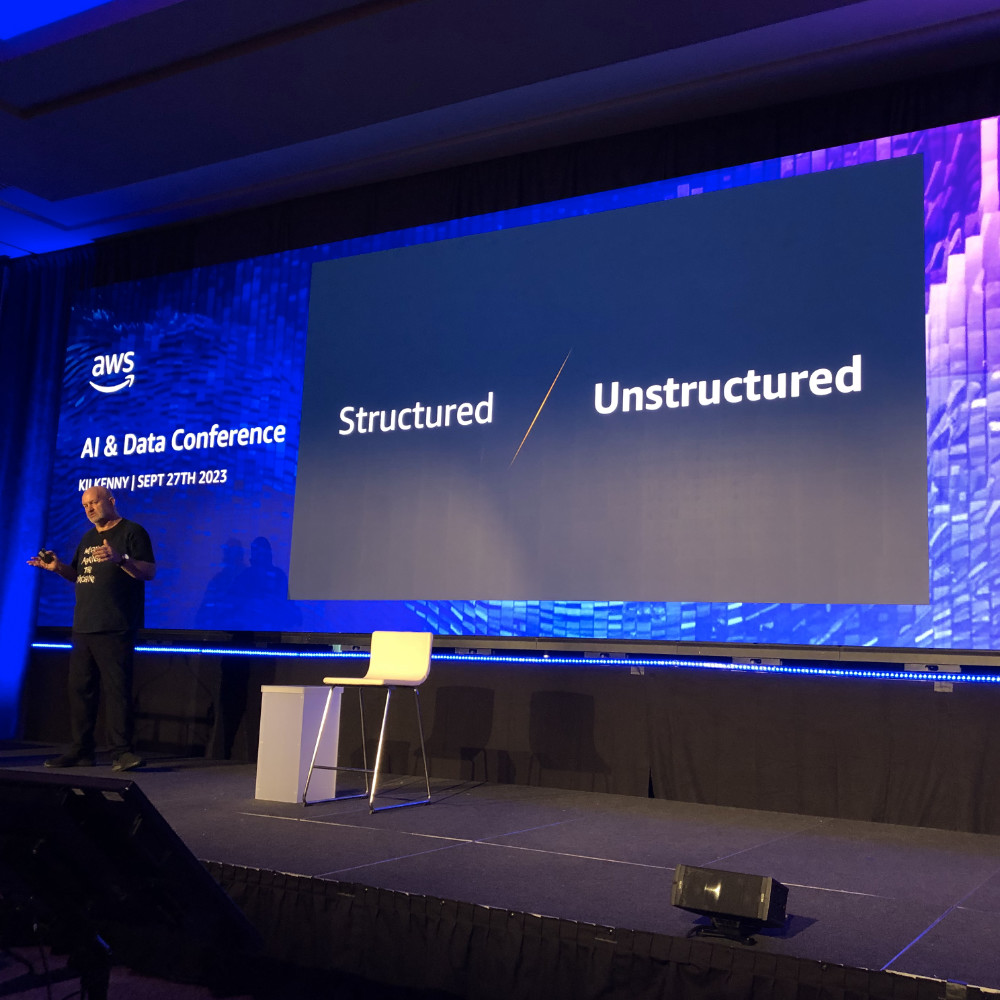
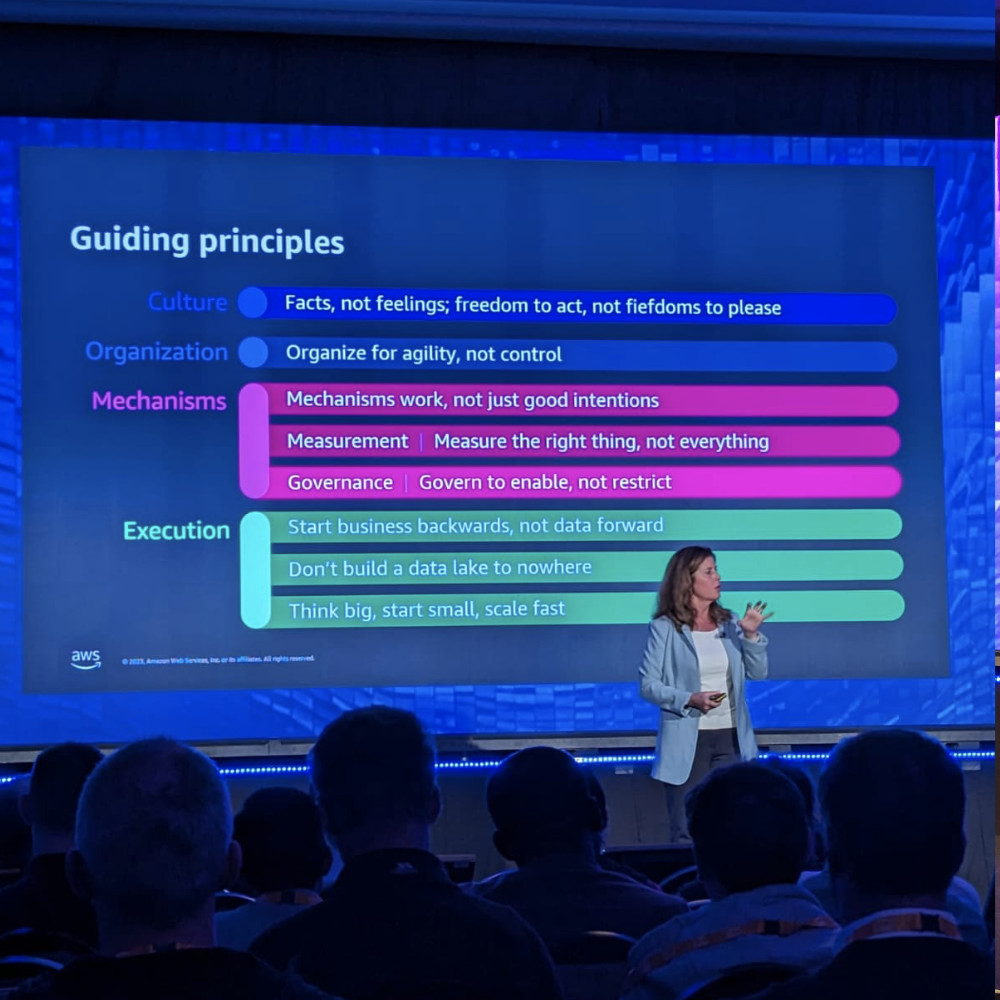
Following the inspiring session led by Dr. Werner Vogels, the event's momentum continued to soar with Miriam's captivating lecture on the concept of "Game changers." In the pursuit of transforming an organisation, building a data-driven culture is so important. Hierarchy and culture must align with this transformation, embracing the 'you build it, you run it' philosophy. There is a need for a change in the approach to measurements. Moving from absolutes to relative rates, from investment to price per unit, from deadlines to velocity, and from ideal use cases to the cost of experimentation is essential. Measuring the right metrics takes precedence over measuring everything. We got valuable insights into the pivotal role of data in shaping the future of organisations.
Then, we immersed ourselves in the realm of GenAI. We all know that Generative AI has taken the world by storm and has democratised innovation across the organisation, bringing potentially huge efficiencies and new opportunities. Any organisation aims to harness the potential of generative AI while establishing essential checks and balances is equally important.
It was good to see that not only AWS speakers but also the opportunity to witness how AWS's partners assisted Informa in harnessing the power of generative AI to analyse customer feedback.
Let's not call it just GenAI; Generative Business Intelligence (Generative BI) heralds a new era of data-driven insights. In Amazon QuickSight, Generative BI empowers business teams to engage with data using natural language. Business users can effortlessly craft and share impactful data narratives. In contrast, business analysts can construct and enhance visuals and intricate calculations with the simple act of querying QuickSight Q. We had the privilege of conversing with Quicksight experts, delving into the latest developments in QuickSight, exchanging insights regarding our initiatives, and exploring ways to boost our capabilities and contributions in assisting our customers. If you are one of those who would like to keep pace with it, there is an upcoming AWS event in London, The Powered by QuickSight Roadshow is coming to a city near you - What's New / Blog / Blog - Amazon QuickSight Community
After satisfying our appetites with a hearty lunch, it was time for us to go our separate ways, each heading into different streams of sessions. I went ahead with the AI/ML track.
High-level information on what you can do with existing AWS services like Textract, Transcribe, Kendra, Lex and Rekognition was discussed. It is equally important to know whether any use case fits GenAI. The use case should be impactful, visible, relatable, and not limited to solving just one problem.
Foundation Models power GenAI. They are pretrained in vast amounts of unstructured data. They contain a large number of parameters that make them capable of earning complex concepts and can be applied in a wide range of contexts.
A GenAI Prototyping journey typically involves multiple stages involving Identifying a use case, understanding prompt engineering , evaluate models to use, trying APIs and code examples in building a prototype.
A brief overview was shared on when to and when not use GenAI:
| Use ML (or Gen AI) | Not use ML(or Gen AI) |
|---|---|
| When you have humans in the loop | When you can practically construct a suitable data -independent FSM to turn inputs into outputs |
| When the output wont materially affects individuals in EY, or you can manually reproduce the process which turns inputs into outputs and get results | When 100% reliability is required |
| When there aren’t any copyright issues around training data | When the output will affect individuals in EU, you can’t manually reproduce the process which turns inputs to outputs and get results |
| When lawsuits in progress |
We reviewed various architectures under the theme "Putting Your Generative AI Application into Production." The discussions encompassed GenAI recommendations and best practices in considerable detail.
A session on Vector Database followed this. KX presented a solution to the challenges of maintaining Large Language Models (LLMs) by introducing the world's fastest vector and time series database engine. Vector databases can anchor LLM responses in verifiable truths and real-time contextual information.
Another captivating segment focused on the use and advancements of CodeWhisperer. Seeing how Codewhisperer will make DevOps and Developers' lives easier was great. During a preview, Amazon conducted a productivity challenge, revealing that participants who utilised Amazon CodeWhisperer were 27% more likely to complete tasks successfully and achieved a remarkable 57% reduction in task completion time compared to those who did not use CodeWhisperer.
In closing, the day concluded with an enjoyable atmosphere as we shared casual conversations, indulged in beverages, and networking as usual.
While numerous other insightful sessions cannot be covered in this blog, it was an extraordinary day. We had the privilege of meeting exceptional individuals from the industry and gaining fundamental insights into GenAI. Furthermore, we learned about AWS's ongoing efforts to contribute to a more sustainable planet.
In conclusion, I'd like to summarise this blog with a quote from the event: "Good AI requires good data, good data necessitates good AI, and good work relies on good people."

